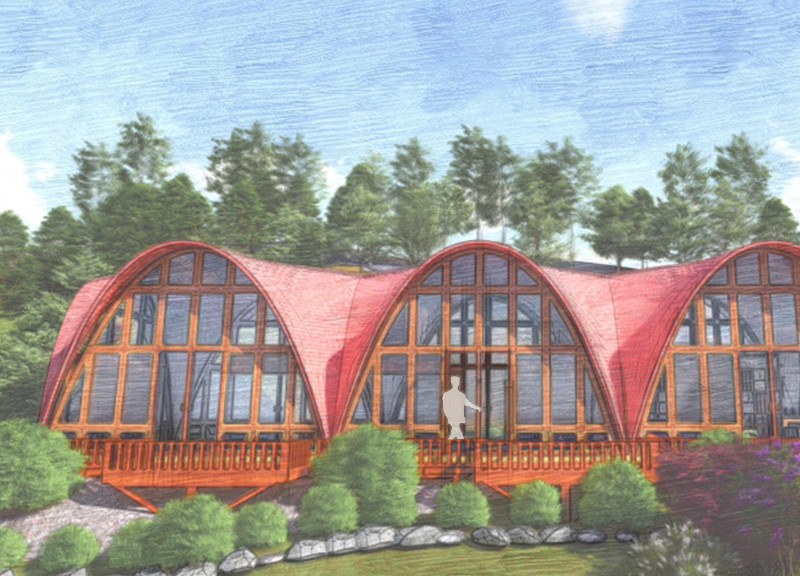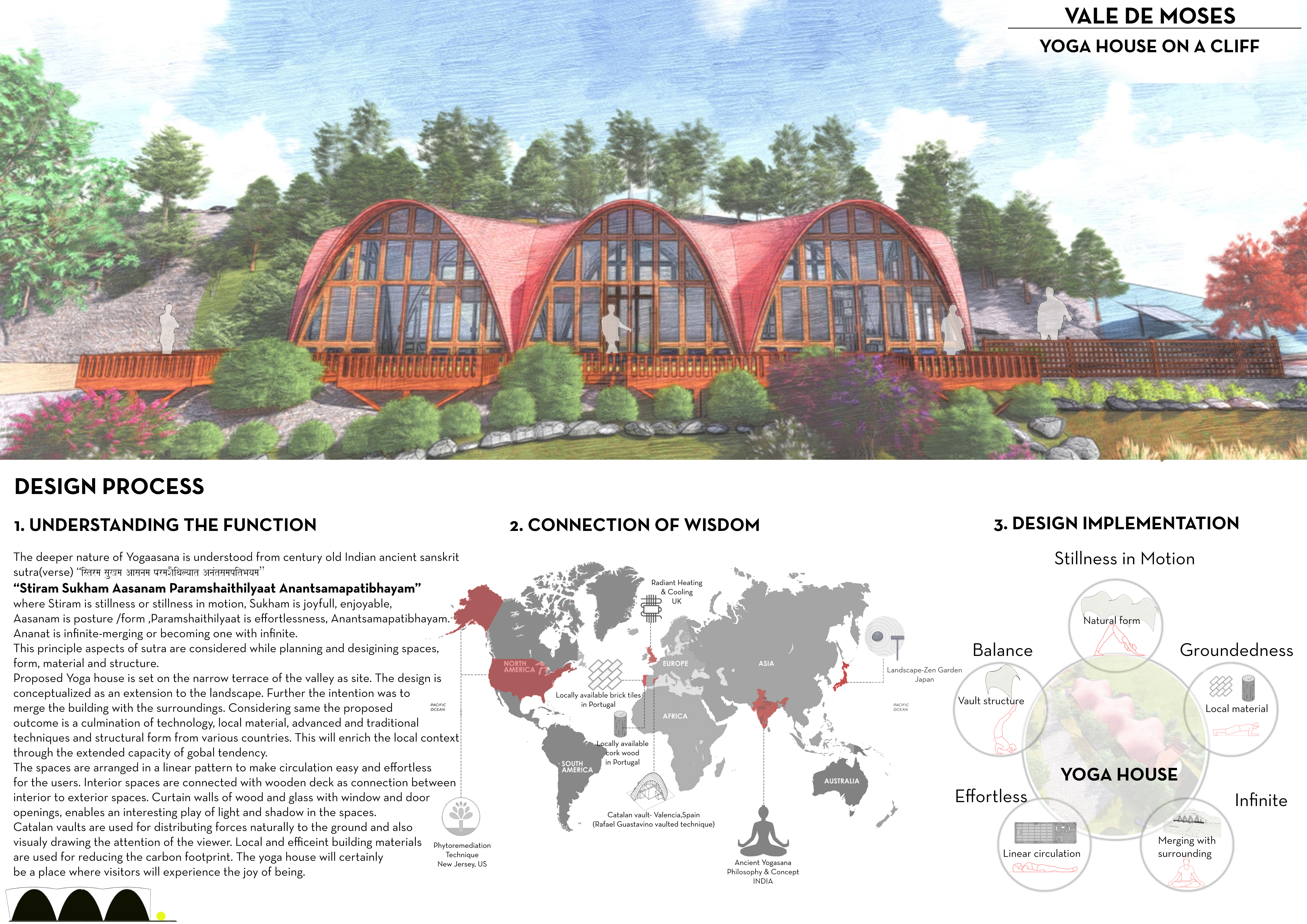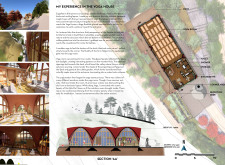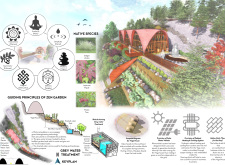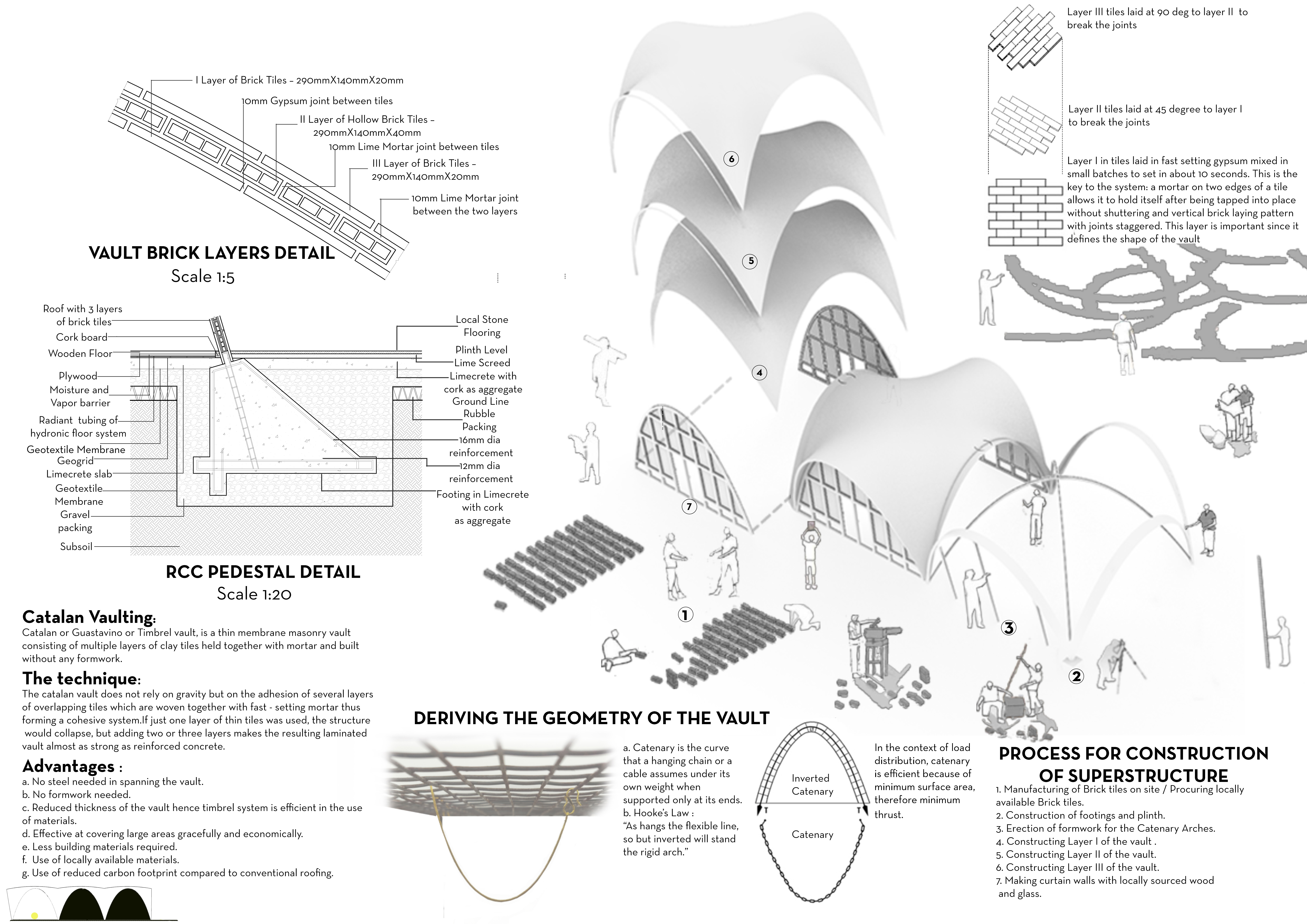5 key facts about this project
The Yoga House is located in the peaceful landscape of Vale de Moses, designed to embody the principles of Yogaasana. It serves as both a retreat and a practice space, blending the building with its natural surroundings. Inspired by ancient Sanskrit philosophy, the design highlights stillness, joy, and a connection to something greater.
Spatial Organization
The interior layout features a linear circulation pattern that promotes easy movement between various spaces. This design encourages users to engage with the tranquil outdoor environment. Wooden decks act as transitions, linking indoor and outdoor areas and enhancing the feeling of continuity with nature.
Architectural Features
A key element of the Yoga House is the use of Catalan vaults. This traditional construction method supports structural loads while providing a spacious interior. The vaults add visual interest and enhance the functionality of the spaces below. Large openings and curtain walls allow ample natural light, creating changing patterns and shadows throughout the day.
Material Choices
The materials chosen for the Yoga House are carefully selected to fit the local context. Locally available brick tiles are used for flooring, emphasizing sustainability and regional craftsmanship. Wood is also widely used in the decks and structural components, adding warmth to the overall design. These material choices support eco-friendly practices and contribute to a rich sensory experience.
Sustainable Practices
Sustainability is an important aspect of the design. Phytoremediation is employed for grey water treatment, using biofiltered garden beds to handle water use responsibly. This system aligns with the commitment to environmental harmony, reducing impact while enhancing the landscape. Solar photovoltaic systems are included to promote energy efficiency, ensuring the building’s operations are self-sufficient.
The architectural design features catenary openings that frame views of the surrounding landscape. This invites the beauty of the valley into the experience of the space, reinforcing the connection between nature and the practice of mindfulness.


